University Of The West Of Scotland looks to connect with local businesses and organisations
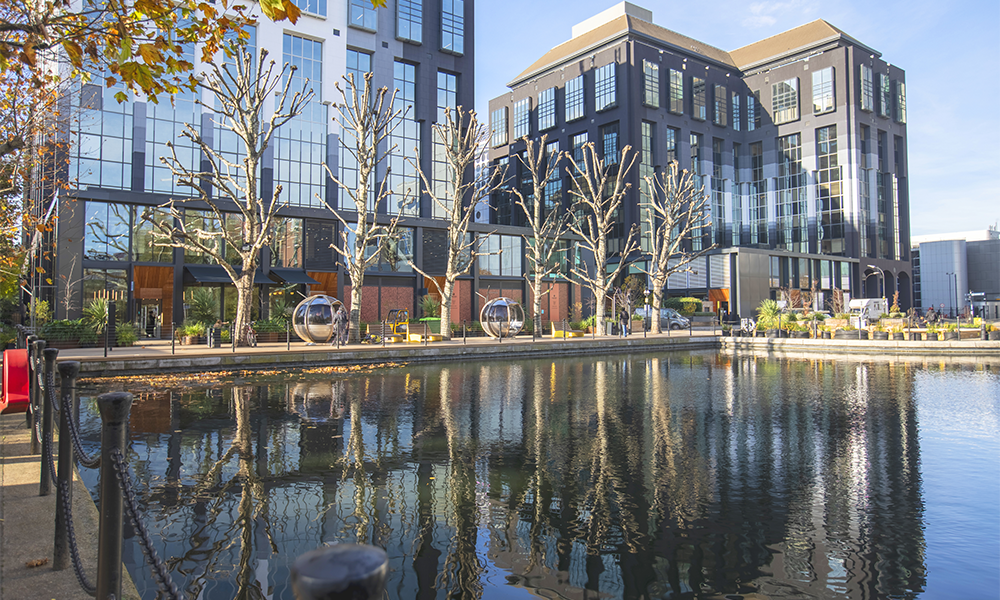
Subscribe to Wharf Life’s weekly newsletter here
“This area is lively – a part of the regeneration of London – it’s fun and it’s got far more going on than other parts of the capital so I’m really glad we came here,” said Lucie Pollard, director of the University Of The West Of Scotland’s London Campus.
UWS’s southern base arrived at Republic in Blackwall just as the pandemic was beginning and is finally getting a chance to settle into its new home, following the various lockdowns.
“Where we were before, near London Bridge, students said that they didn’t like being in an office block,” said Lucie.
“But the buildings here don’t feel like that at all and having the other universities here with us makes it a really exciting place – almost a multi-versity.”
UWS’s roots date back more than 100 years to its foundation in Paisley and the university is well-known in Scotland, recently being named Higher Education Institution Of The Year for 2022 at The Herald Higher Education Awards.
“That’s the Oscars of Scottish higher education, so it’s very important for us institutionally,” said Lucie.
“We’re a really innovative organisation, which goes back to our roots in terms of supporting the local community and businesses – creating degrees that allow students to take up employment easily and also welcoming more mature students than any other university.
“Creating a London campus in 2015 was all about bringing that space we occupy in Scotland to the capital, growing our international reputation and providing a place for students from overseas who want to study here.
“We have people from around 60 different countries studying at this campus and they have so much to offer. It’s our aim to be more community-facing, to work with local authorities and businesses based here.
“I believe that will be of great benefit, because our students have so much knowledge, so many skills and languages and an understanding of cultural nuances from their varied backgrounds.
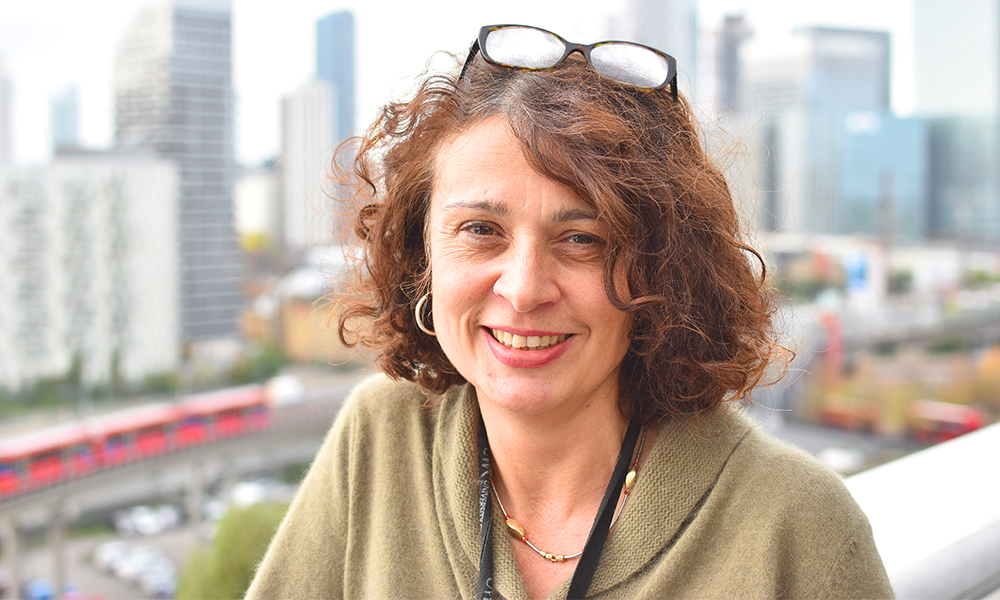
“That means they can be a real asset to the local community, whether that’s working with businesses or doing voluntary work here.
“I’m really keen for them to have work experience in different firms and we’d love to talk to organisations locally to create micro-placements.
“That could be two weeks or six weeks – it really depends on the project.
“We’re especially interested in talking to small and medium-size businesses who may want help with projects – it means our students will gain far more in terms of understanding the strategic work that companies do, than they will from a placement at a much larger firm.”
UWS’s London campus offers a range of courses including undergraduate degrees in business and health studies, an extensive selection of business, education and administration-focused masters qualifications and, from April next year, PhD programmes.
“We also offer courses with Continuing Professional Development (CDP) accreditation, especially in AI and data analytics because those are areas where people need to upskill,” said Lucie, who spent nearly two decades working in various roles at the University Of Greenwich, before making the move to UWS in 2017.
“There are a lot of people in business who have risen over the years and suddenly realise there’s a whole load of tech that they have limited understanding of and need to find out about fast.
“They can do that very quickly by plugging into CPD. We’ve also identified the areas of sustainability, equality and diversity, where there’s a similar need.
“Those courses could be delivered digitally, in person or a mixture of the two.
“Our university strategy up to 2025 was launched in January 2020, just before the pandemic, and it was all about hybrid teaching.
“Covid became a real catalyst for us – we’re making the best use of technology.
“We’ve invested in new digital platforms for the students and we’ve got a huge digital transformation project that’s ongoing.
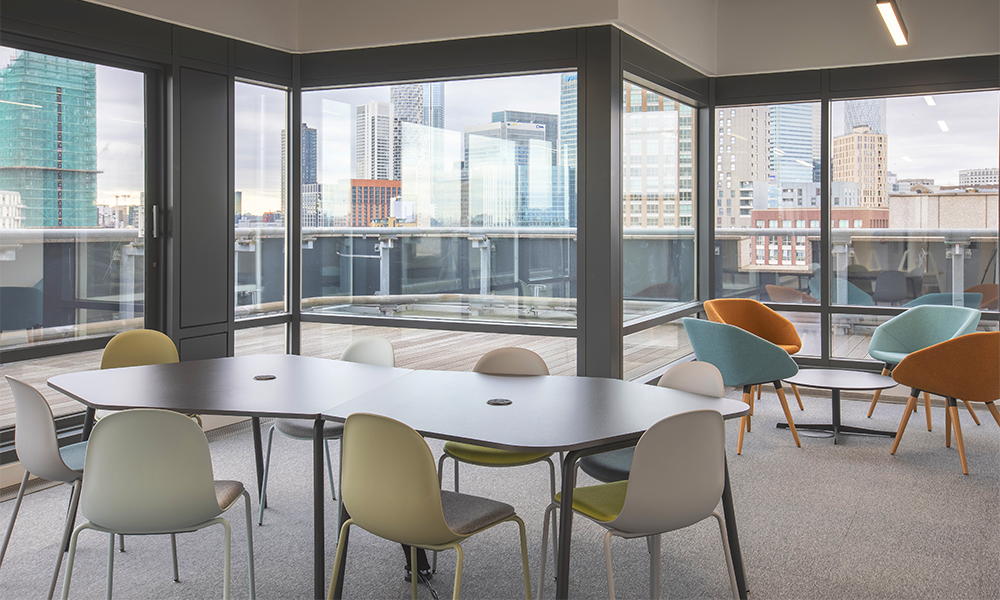
“We find students are very discerning about what they want on campus.
“We don’t want everything to be online because we’re not the Open University.
“Our students want some things online so they can access them wherever they are, but they also want things on campus that are really authentic and immersive.
“After all, you don’t want to spend money coming in and then just listen to someone reading out a Powerpoint slide. It’s also vital to build a network of contacts who will be with you for a very long time.
“On an operations level, moving to an institution where the other campuses are 400 miles away was an interesting challenge.
“I’m not sure why we didn’t use Teams before Covid, but having that now has been really refreshing – it’s so easy to jump on a call and be in a virtual meeting.
“The pandemic has made tech more responsive.”
Responding to people’s needs is very much the guiding principle at UWS, as its staff work to provide the best experience possible for those taking its courses.
“When I was at Greenwich, I’d been an academic and I’d worked in the more professional service areas,” said Lucie.
“I do finance, I do HR and I understand students’ needs.
“So to work at UWS where students always come first is really rewarding. We really do feel passionately that we are here for those who are taking our courses.
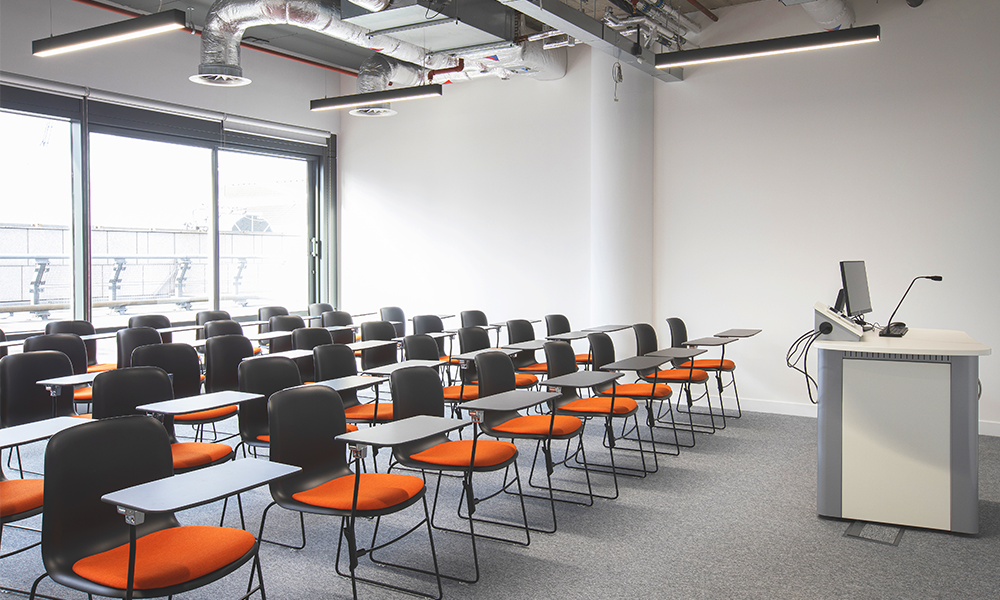
“My daughter watches Gordon Ramsay – although I don’t know why – and he always makes it clear that the most important person is the customer. We have the same philosophy here.
“That makes a real difference to your mindset – you spend your time thinking that the student is more important than the vice-chancellor – and it really does work.
“Communication is really important too, so we make sure that we’re really clear to students that we know what it means for them to come here – the challenges involved in relocating to a different country – and making sure it’s a welcoming space.
“We recently held our graduation ceremony and that’s always great because you get to see the end result – the students come up and tell you about the great experiences they’ve had.
“UWS is somewhere they get to meet people from lots of different backgrounds, where they get supported by the staff in London, but can also tap into the research that’s happening in Scotland.
“It’s a journey – they’ve typically come over from another country and that can be daunting. Then they find support among new friends and almost become part of a new family.
“We hope during their time with us that they get the knowledge, skills and expertise they need to go out and make a huge impact in the societies they want to work in.
“I’m old and spent years in one institution before moving to another.
“Now people move jobs every year or every three years, and they need to be world-ready to work in this country, the US, Australia or their countries of origin.
“Having those skills is really important.”
With lockdowns and Covid restrictions in the past, UWS is bedding into life at Republic and seeking to forge new links with local businesses.
“One of the ways we can do that is though our CPD programme,” said Sadiq Islam, business manager for the university’s London Campus.
“We’re keen for our name to be known as widely as possible and, by building relationships through our CPD courses, we’re able to create partnerships for student placements by engaging with those companies.”
He said UWS was currently offering a subsidised Help To Grow Management Course – a 12-week programme aimed at senior leaders in small and medium-sized businesses to help their organisations thrive and grow.
The Government covers 90% of the cost of the course which involves 50 hours of training and one-to-one mentoring, delivered on a flexible basis, both online and face-to-face.
Firms, which must have been operating for more than a year and have five or more employees, then pay a fee of £750.
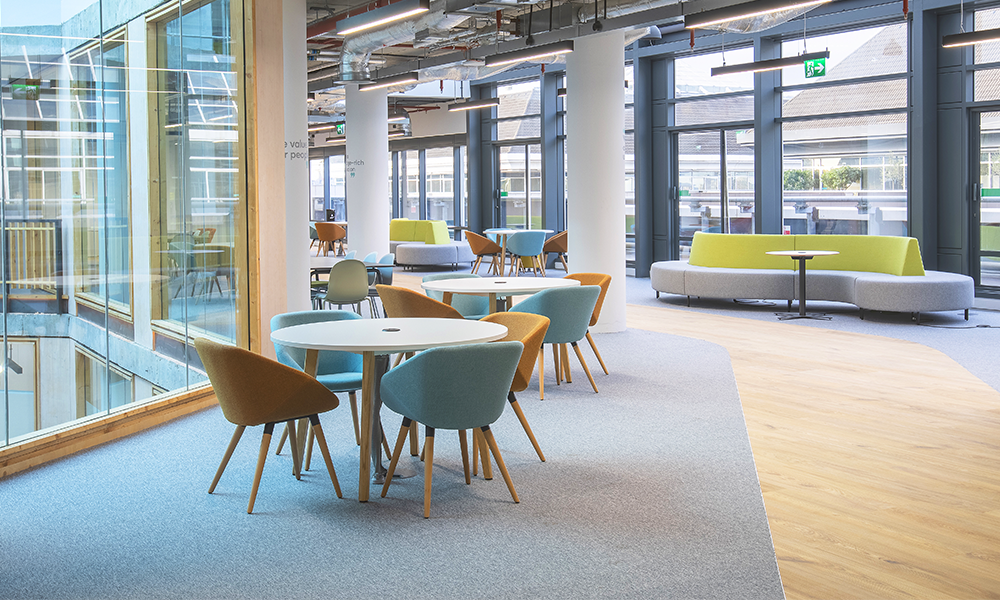
Read more: How Bureau is offering creative workspace in Greenwich
Read Wharf Life’s e-edition here
Subscribe to Wharf Life’s weekly newsletter here
- Jon Massey is co-founder and editorial director of Wharf Life and writes about a wide range of subjects in Canary Wharf, Docklands and east London - contact via jon.massey@wharf-life.com



